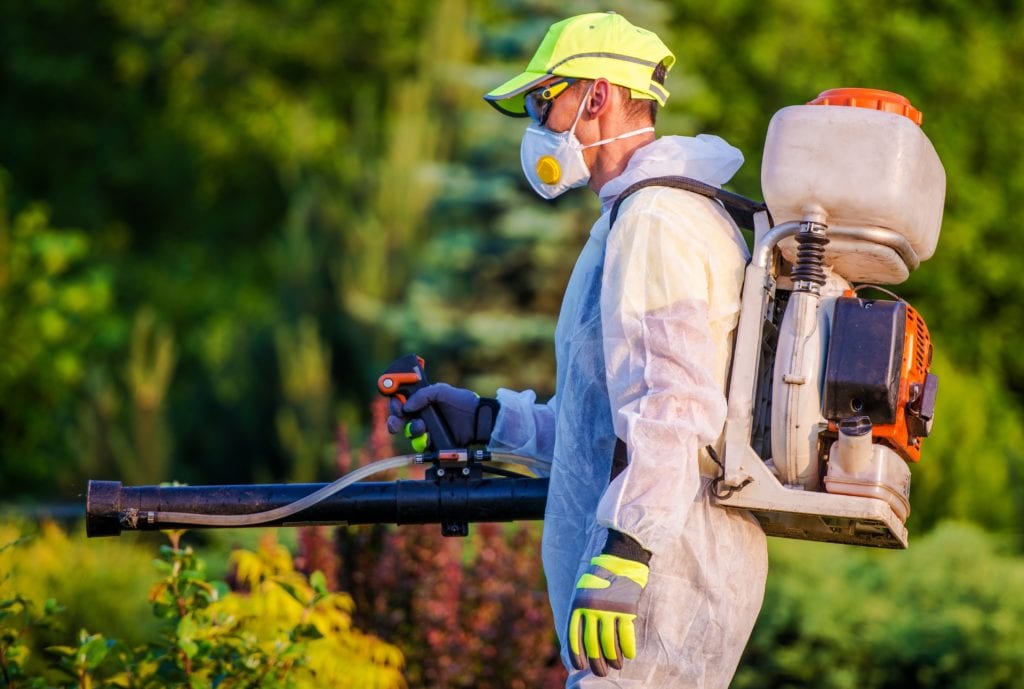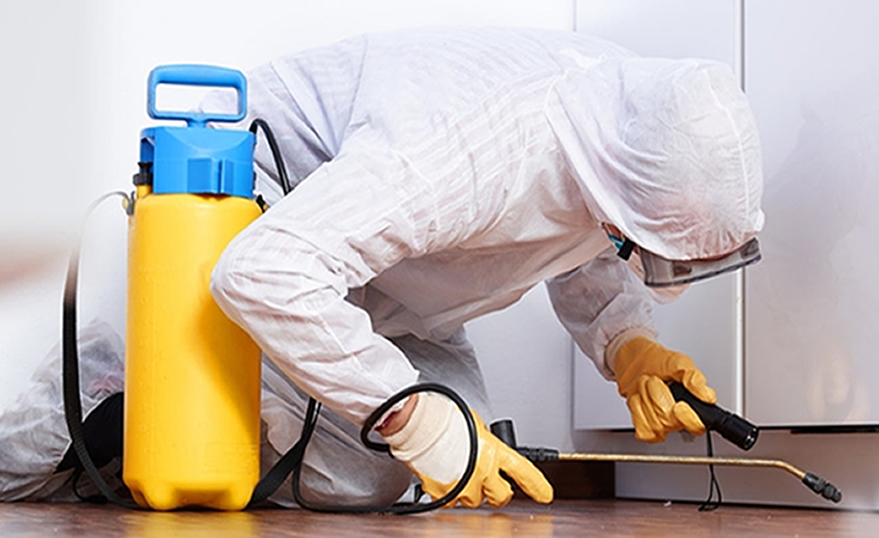Bed Bug Dog Detection: Detect Infestations Early for Peace of Mind!
Bed Bug Dog Detection: Detect Infestations Early for Peace of Mind!
Blog Article
Expert Pest Control Techniques for Long-Term Results
In the realm of parasite control, accomplishing sustained efficacy and long-term outcomes requires a thorough technique that transcends simple extermination. Specialist insect control strategies encapsulate a comprehensive approach that begins with a comprehensive inspection and evaluation, followed by accurate pest identification to recognize their habits patterns. The execution of Integrated Insect Monitoring (IPM) principles, paired with eco-conscious treatments, creates the cornerstone of sustainable pest eradication. Nevertheless, truth examination hinges on the recurring surveillance and upkeep of the dealt with locations, guaranteeing a pest-free environment for the direct future. By delving into the ins and outs of these techniques, a much deeper understanding of specialist insect control methods for withstanding outcomes emerges.
Examination and Assessment
Upon going into a property for parasite control services, the first action is a complete evaluation and evaluation to identify the extent of the invasion and determine the most efficient treatment strategy. Expert bug control professionals are educated to thoroughly take a look at the facilities, searching for signs of parasite task such as droppings, chomp marks, nests, or any type of structural damage. They will certainly additionally assess the conditions that may be drawing in bugs, such as food sources, water leaks, or entry factors.

Pest Recognition and Behavior

In addition, recognizing the behavior of the identified insect is vital to carrying out reliable control procedures. Recognizing where bugs nest, what they feed on, and their activity patterns can aid pest control specialists develop techniques to eradicate them efficiently. Some bugs might be nighttime, while others are much more active throughout the day. This expertise enables the application of therapies at optimum times for maximum effectiveness.
Integrated Bug Administration (IPM)
Integrated Pest Administration (IPM) strategies integrate multiple methods to regulate and stop pest problems in a sustainable and eco friendly fashion. bed bug dog. By integrating techniques such as organic control, habitat control, alteration of cultural methods, and the usage of immune varieties, IPM aims to decrease making use of chemical pesticides
One of the essential principles of IPM is the emphasis on avoidance. This positive strategy includes monitoring pest populations routinely to find any kind of potential problems before they rise. By identifying insect issues at an early stage, pest control steps can be carried out promptly and effectively.
Furthermore, IPM promotes using non-toxic bug control approaches whenever possible. This can include utilizing all-natural killers of the parasites, presenting advantageous bugs, or utilizing scents to interfere with breeding patterns. By reducing reliance on chemical pesticides, IPM not only shields the atmosphere yet also assists preserve a balance in the ecosystem.
Environmentally-Friendly Therapies
Executing eco-conscious approaches in bug control treatments can effectively attend to infestations while prioritizing environmental sustainability. Environmentally-friendly therapies concentrate on reducing the influence of pest control approaches on ecological communities, non-target organisms, and human health. These approaches usually include using all-natural killers, such as ladybugs or nematodes, to control pest populations, decreasing the requirement for chemical interventions. Furthermore, methods like habitat manipulation, such as readjusting wetness levels or removing food resources, can aid prevent insects without the use of hazardous substances.
An additional secret aspect of environmentally-friendly therapies is making use of natural and eco-friendly products that break down quickly without leaving harmful deposits in the setting. Agricultural pesticides stemmed from plants like chrysanthemums or neem provide effective pest control while positioning link very little risk to non-target species. Employing approaches like warm treatments or scent catches can target specific bugs with precision, minimizing the total ecological influence of pest control techniques.
Recurring Tracking and Upkeep
Normal assessments by skilled specialists are essential to recognize any kind of indicators of pest task, assess the effectiveness of previous treatments, and make adjustments to the bug control plan as needed. By keeping track of bug populaces over time, bug control experts can track fads, expect prospective problems, and apply preventative procedures to reduce the threat of my website future problems.
Along with surveillance, upkeep methods are vital for lasting insect control success. This consists of executing proper cleanliness actions to eliminate prospective food and water resources for bugs, sealing access indicate stop parasites from entering the premises, and attending to any kind of architectural issues that could assist in parasite infestations (pest control near me). By incorporating continuous surveillance and maintenance right into an incorporated parasite management method, businesses can guarantee a pest-free setting and protect their residential or commercial property versus costly damages and health dangers
Verdict
In conclusion, utilizing expert parasite control strategies such as complete assessment and evaluation, precise insect identification and understanding of their habits, integrated bug monitoring methods, environmentally-friendly therapies, and continuous tracking and upkeep are necessary for accomplishing long-lasting outcomes in parasite control. By implementing these methods, individuals can efficiently manage pest invasions and preserve a pest-free setting in termite control pesticides a lasting way.
Report this page